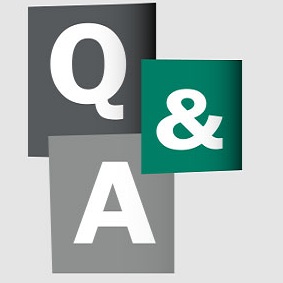Say, do you remember?
The MOTYB test can mean more than you'd expect.
It was a lovely March morning, with an impending blizzard warning. Nevertheless, the inpatient geriatrics consult service had several people to round on. Mr. B, who was recuperating from a ground-level fall and multiple rib fractures complicated by delirium, was sitting in his recliner as we entered his room and greeted us with a huge smile. He held up his hand for quiet and, without any prompting, started reciting, “December, November, October, August, July…”.

Down the hall, we met another patient's excited wife, who admitted that her husband had been practicing his months. Again, without prompting, he started in: “December, November, October, August, July…”. Why was it so hard to remember September?
Being music lovers, we realized that there are in fact many songs about September—dozens of them, making it the most mentioned month in songs. Leading the pack is Earth, Wind & Fire's famous 1978 hit “September,” which inspired Taylor Swift's cover; before that there was Frank Sinatra's “The September of My Years” and afterward, Green Day's “Wake Me Up When September Ends.” Even the world's longest-running musical, “The Fantasticks,” includes “Try to Remember,” a song of September, echoing “September Song” from the 1938 Broadway musical “Knickerbocker Holiday.” To get really obscure think of the lyrics to “Papa Was a Rolling Stone”: “It was the third of September, that day I'll always remember, 'cause that was the day my daddy died.”
But why are there so many songs that are about or mention September? Perhaps it exemplifies transitions, projecting feelings of reflection and reminiscence. Or perhaps it's the mere fact that it rhymes with “remember.”
Checking patients' ability to remember is a frequent task facing our geriatric consult service. To assess their attention, we often ask patients to recite the months of the year backwards (MOTYB), as part of our standardized assessment with the Confusion Assessment Method. The MOTYB test has good sensitivity and specificity for delirium screening and is simple and dependable. It can be interesting to track improvement in a patient's temporarily impaired cognitive function over several days by asking this question.
The next day, Mr. B was getting ready for discharge. His family requested that our team come by the room, insisting to the nurses that we do so before he left for a skilled nursing facility. We wondered if there was a problem, but when we walked in, they were all smiling. Mr. B nailed the MOTYB. Then he laughed and said he had “remembered September!”
It was a reminder that what we think of as a routine metric can take on special meaning to families and patients. That is an important thing to remember, whatever month it is.



